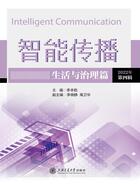
参考文献
[1]Bryce J. The American commonwealth [M]. New York: Macmillan, 1891:251.
[2]微博热搜榜.微博热搜榜2016产品报告[EB/OL].(2016-04-28)[2022-07-20].https://weibo.com/1658035485/Dt4MKzZ3f?refer_flag=1001030103_.
[3]雷丽莉.微博“热搜榜”与互联网信息服务的规制[J].新闻记者,2019(10):81-87.
[4]周葆华.算法、可见性与注意力分配:智能时代舆论基础逻辑的历史转换[J].西南民族大学学报(人文社会科学版),2022(01):143-152.
[5]Dubois E, Gruzd A, Jacobson J. Journalists' Use of Social Media to Infer Public Opinion: The Citizens' Perspective [J]. Social Science Computer Review, 2020, 38(1):57-74.
[6]McGregor S C. Social media as public opinion: How journalists use social media to represent public opinion [J]. Journalism, 2019, 20(8):1070-1086.
[7]Gillespie T. #trendingistrending: When algorithms become culture [M]//Seyfert R, Roberge J. Algorithmic Cultures Essays on Meaning, Performance and New Technologies. London: Routledge, 2016:52-71.
[8]Striphas T. Algorithmic culture [J]. European Journal of Cultural Studies, 2015, 18(4-5):395-412.
[9]Gillespie T. The relevance of algorithms [M]//Boczkowski P, Foot K. Media technologies: Essays on communication, materiality, and society. Cambridge, MA: MIT Press, 2014:167-193.
[10]Herbst S. Public opinion infrastructures: Meanings, measures, media [J]. Political Commu-nication, 2001, 18(4):451-464.
[11]Price D K. Communication concept 4: Public opinion [M]. Newbury Park, CA: Sage, 1992.
[12]Anstead N, O'Loughlin B. Social media analysis and public opinion: The 2010 UK general election [J]. Journal of Computer-Mediated Communication, 2015, 20(2):204-220.
[13]Blumer H. Public opinion and public opinion polling [J]. American Sociological Review, 1948, 13(5):542-549.
[14]周葆华.社会化媒体时代的舆论研究:概念、议题与创新[J].南京社会科学,2014(01):115-122.
[15]Fürst S, Oehmer F. Attention for Attention Hotspots: Exploring the Newsworthiness of Public Response in the Metric Society [J]. Journalism Studies, 2021, 22(6):799-819.
[16]Gillespie T. Can an algorithm be wrong? [J]. Limn, 2012(2):17-20.
[17]Beer D. The social power of algorithms [J]. Information, Communication & Society, 2017, 20(1):1-13.
[18]Ananny M. Toward an Ethics of Algorithms: Convening, Observation, Probability, and Timeliness [J]. Science, Technology and Human Values, 2016, 41(1):93-117.
[19]Carlson M. Automating judgment? Algorithmic judgment, news knowledge, and journalistic professionalism [J]. New Media & Society, 2018, 20(5):1755-1772.
[20]白红义,李拓.算法的“迷思”:基于新闻分发平台“今日头条”的元新闻话语研究[J].新闻大学,2019(01):30-44.
[21]张志安,周嘉琳.基于算法正当性的话语建构与传播权力重构研究[J].现代传播(中国传媒大学学报),2019(01):30-36.
[22]微博管理员.微博热搜管理规则[EB/OL].(2021-08-23)[2022-07-23].https://m.weibo.cn/1934183965/4673288234863216.
[23]王茜.批判算法研究视角下微博热搜的把关标准考察[J].国际新闻界,2020(07):26-48.
[24]微博热搜榜.如何打造#热搜话题#[EB/OL].(2018-03-19)[2022-07-20].https://weibo.com/1658035485/G88PcoHOn?refer_flag=1001030103.
[25]杨阳.专访微博副总裁曹增辉:热搜榜到底整改了什么?[EB/OL].(2018-02-09)[2021-07-24].http://www.jiemian.com/article/1936929.html.
[26]微博热搜榜.微博热搜榜调整规则公告[EB/OL].(2022-01-07)[2021-08-23].https://weibo.com/1658035485/L9EW2iDWl?pagetype=profilefeed.
[27]Mau S. The Metric Society: On the Quantification of the Social [M]. Cambridge: Polity Press, 2019.
[28]张自力,樊猛.质疑民意调查报道[J].杭州师范学院学报(社会科学版),2006(05):35-40.
[29]豆瓣回应“周杰伦专辑提前开分”[EB/OL].[2021-08-24].https://weibo.com/1640663757/LAJGukQwu.